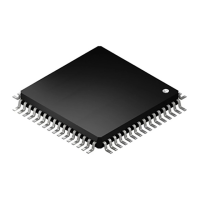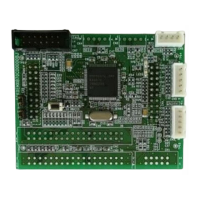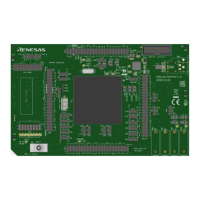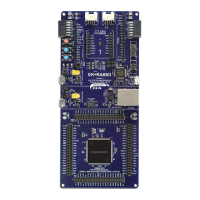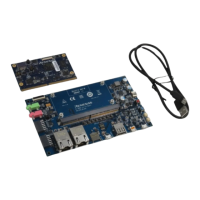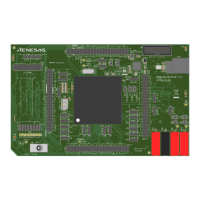RL78/G13 CHAPTER 6 TIMER ARRAY UNIT
R01UH0146EJ0100 Rev.1.00 357
Sep 22, 2011
(15) Port mode registers 0, 1, 3, 4, 6, 10, 14 (PM0, PM1, PM3, PM4, PM6, PM10, PM14)
These registers set input/output of ports 0, 1, 3, 4, 6, 10, 14 in 1-bit units.
The presence or absence of timer I/O pins depends on the product. When using the timer array unit, set the
following port mode registers according to the product used.
20, 24, 25, 30, 32, 36, and 40-pin products: PM0, PM1, PM3
44, 48, 52, and 64-pin products: PM0, PM1, PM3, PM4
80-pin products: PM0, PM1, PM3, PM4, PM6
100 and 128-pin products: PM0, PM1, PM3, PM4, PM6, PM10, PM14
When using the ports (such as P01/TO00 and P17/TO02/TI02) to be shared with the timer output pin for timer
output, set the port mode register (PMxx) bit and port register (Pxx) bit corresponding to each port to 0.
Example: When using P17/TO02/TI02 for timer output
Set the PM17 bit of port mode register 1 to 0.
Set the P17 bit of port register 1 to 0.
When using the ports (such as P00/TI00 and P17/TO02/TI02) to be shared with the timer input pin for timer input,
set the port mode register (PMxx) bit corresponding to each port to 1. At this time, the port register (Pxx) bit may
be 0 or 1.
Example: When using P17/TO02/TI02 for timer input
Set the PM17 bit of port mode register 1 to 1.
Set the P17 bit of port register 1 to 0 or 1.
The PM0, PM1, PM3, PM4, PM6, PM10, PM14 registers can be set by a 1-bit or 8-bit memory manipulation
instruction.
Reset signal generation sets these registers to FFH.
Remark In the 20- to 30-pin products, TI00 (P00) and TO00 (P01) pins alternate analog input pins. When using
the timer I/O function, the corresponding bit of the PMC0 register for switching digital I/O or analog input
is sure to set to “0”.
<R>
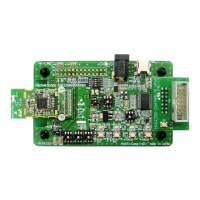
